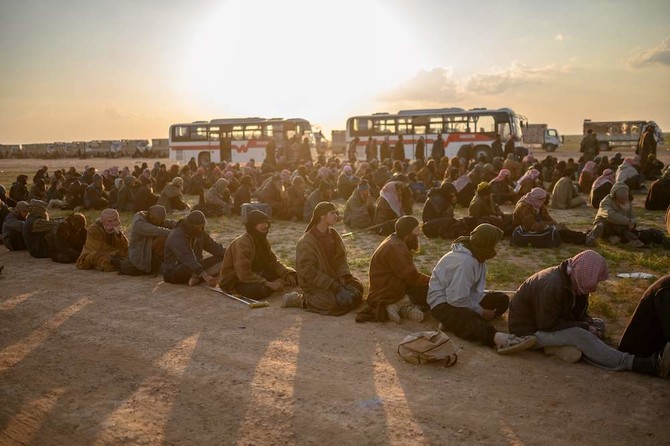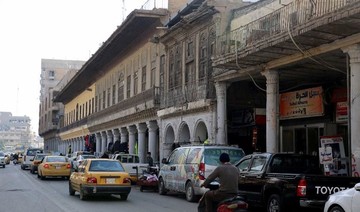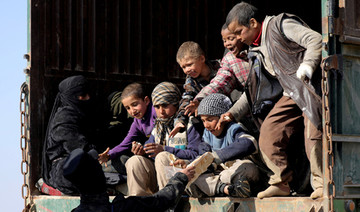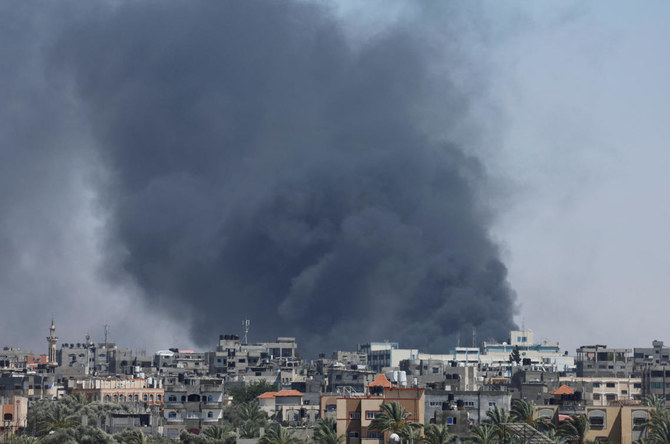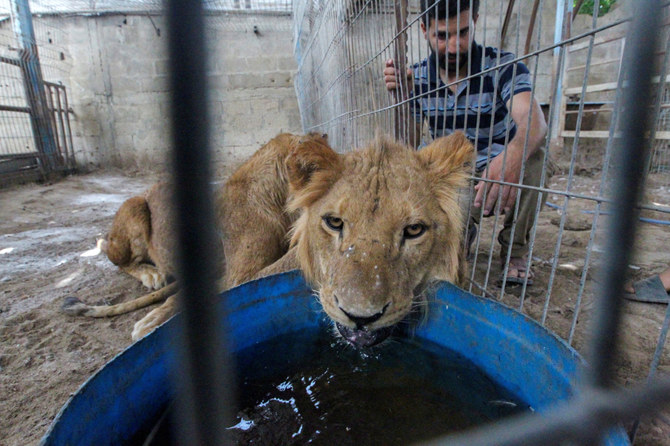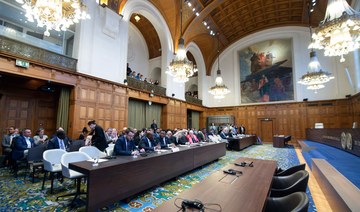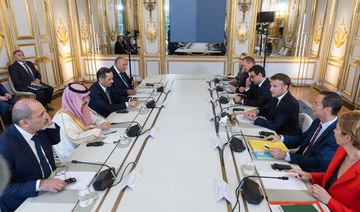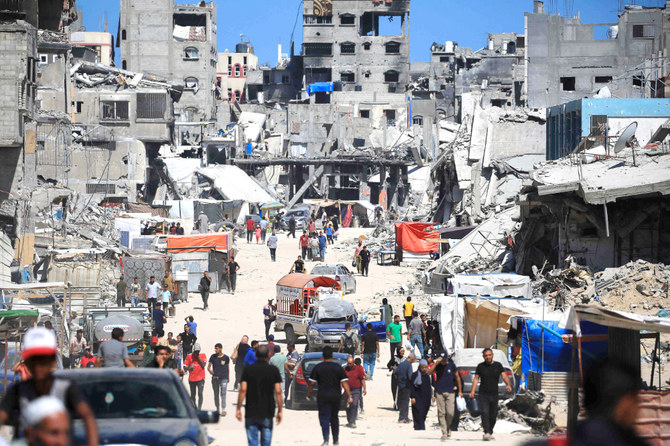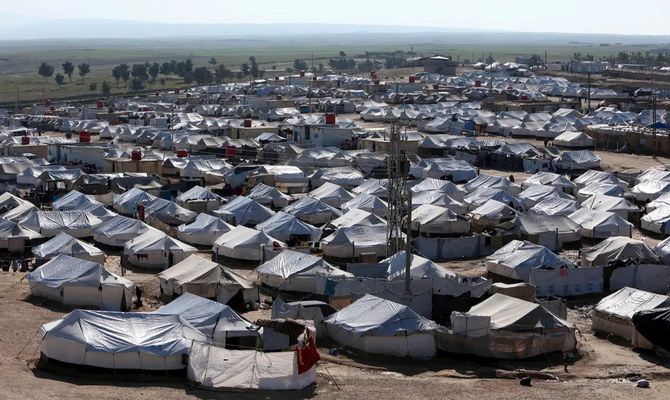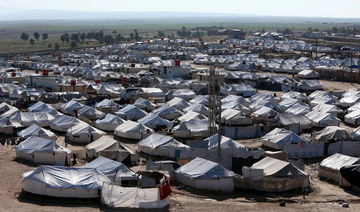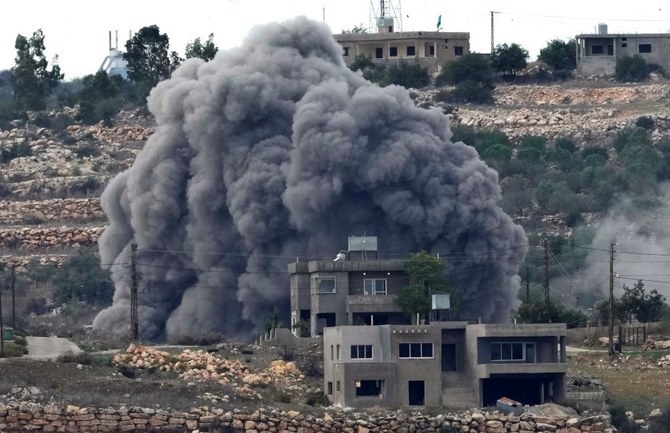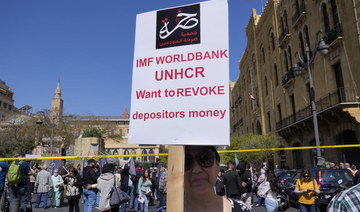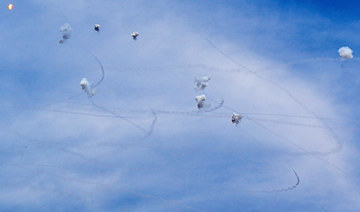NEAR BAGHOUZ, Syria: US-backed forces evacuated over 40 truckloads of people from Daesh’s last Syria redoubt on Monday, as they sought to clear out civilians before a final push to crush the militants.
The Syrian Democratic Forces (SDF) have slowed down their offensive on the final pocket due to the presence of civilians, with just a scrap of the Daesh “caliphate” remaining from a territory that once spanned Syria and Iraq.
An AFP correspondent saw more than 46 trucks crammed with men, women and children, approaching an SDF outpost, 20 kilometers (12 miles) north of the militant redoubt.
One vehicle was packed with women clad in black and men who covered their faces. Wounded people were also among the latest evacuees.
Holdout Daesh fighters and civilians, mostly relatives of militants, are trapped in less than half a square kilometer in the village of Baghouz near the Iraqi border.
The Kurdish-led SDF evacuated nearly 5,000 men, women and children from the militant redoubt on Wednesday and Friday, but none over the weekend.
Earlier on Monday, SDF spokesman Mustefa Bali, told AFP that thousands remained inside the Daesh pocket.
“According to what we heard from those who have left, there are nearly 5,000 people still inside,” Bali said.
At the SDF screening point outside the village, SDF fighters expressed hopes that Monday’s arrivals would be the last one.
“We want it to be over,” Mazloum, a 29 year-old SDF fighter told AFP.
“Every day we say today is the day but we hope it will all end today and not tomorrow,” he said.
Kurdish foreign affairs official Abdel Karim Omar told AFP on Monday that the SDF will announce the end of the Daesh proto-state “in the next few days.”
“But this does not mean that we have eliminated terrorism, which must be eradicated at the roots,” he said.
Beyond Baghouz, Daesh still has thousands of fighters and sleeper cells across several countries.
In Syria, it retains a presence in the vast Badia desert, and the militants have claimed deadly attacks in SDF-held territory.
Thousands of suspected Daesh fighters have attempted to blend in with civilians fleeing the crumbling “caliphate.”
According to the Britain-based Syrian Observatory for Human Rights, around 46,000 people, including thousands of militants, have streamed out of the Baghouz pocket since early December.
The SDF screens those exiting at an outpost outside the village to weed out potential Daesh fighters.

Men suspected of being Daesh fighters wait to be searched by members of the Kurdish-led Syrian Democratic Forces (SDF) after leaving the group’s last holdout of Baghouz, in Syria’s northern Deir Ezzor province on February 22, 2019. (AFP)
After being vetted, women, children, and men not suspected of belonging to the extremist group are transported north to the Kurdish-run camp of Al-Hol, while suspected militants are sent to SDF-held detention centers.
The Observatory on Monday said that 1,400 people, mainly Daesh relatives, were secretly transported from orchards on the outskirts of Baghouz to neighboring Iraq over the past 24 hours.
Kurdish foreign affairs official did not confirm the transfer, but denied that the SDF was responsible.
“In principle, we do not hand over any person passing through our territories to Iraqi authorities or any other party,” Omar said.
Such transfers can only happen if they were trucked from Baghouz “by another party,” he explained, without specifying.
Baghdad on Sunday said the SDF have transferred 280 Iraqi nationals accused of fighting alongside Daesh to Iraqi authorities.
Fourteen suspected French militants were among those transferred, an Iraqi government source told AFP on Monday.
Hisham Al-Hashemi, an Iraqi expert with intimate knowledge of the issue, said the transfer had taken place in coordination with the US-led coalition fighting Daesh.
The mass outpouring of men, women and children from the Daesh foothold has overwhelmed the Kurdish-run Al-Hol camp, six hours north of Baghouz.
“The international community is not currently taking responsibility toward the large number of people leaving the last Daesh pocket, especially children,” Omar said.
The International Rescue Committee said Friday that new arrivals had pushed the camp’s population to over 45,000, exacerbating already dire conditions at the crammed facility.
At least 78 people, mostly children, have died on the way to the camp or shortly after arriving in recent weeks, the IRC said.
A warehouse fire on Friday caused by a gas cylinder explosion “destroyed 200 family tents” and five larger ones and injured 16 workers, it said.
The UN’s humanitarian coordination office OCHA on Friday warned the camp was struggling to keep up with the flood of evacuees.



